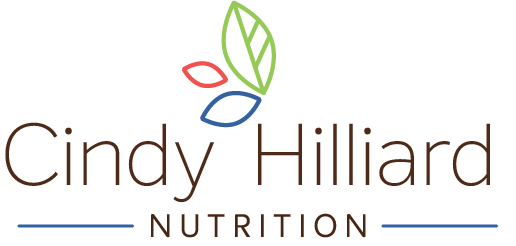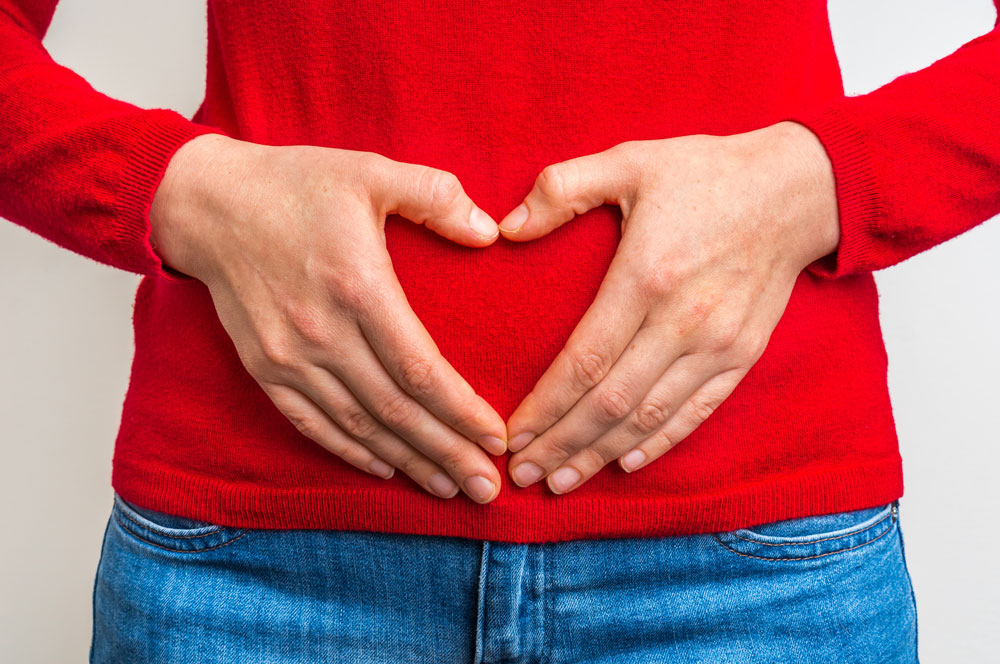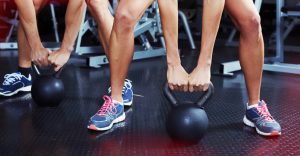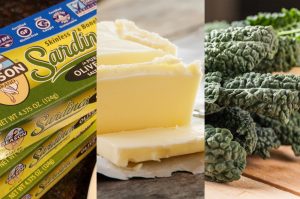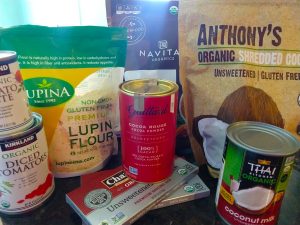Digestion is SO important!
When our digestion is functioning well, we not only feel great, but our bodies are able to absorb and utilize all of the nutrients from the food we eat—and that’s the point, right? Good digestive function in turn keeps our immune system healthy, our muscles strong, our skin glowing, and our brain function optimized!
So go ahead and try these five simple things that you can start today to help get your digestion working right!
Sit Down
Prepare your body for eating. Your autonomic nervous system switches between sympathetic (fight or flight) and parasympathetic (rest and digest) mode depending on what you are doing. In order for digestion to work properly, your body needs to be in a parasympathetic state—relaxed and ready to digest. This signals the body to start preparing for digestion by stimulating the salivary glands and stomach acid production.
When you eat on the go, your body remains in fight or flight mode, which means your body is not ready for digestion, but is focusing on survival instead. Think escaping from or fighting a bear! You don’t want your body using energy to digest food when you need that energy to survive!
When you sit down and relax for a minute before eating, you set your self up for optimal digestion which is necessary not only to prevent digestive discomfort, but also to maximize nutrient absorption. So sit down (on the floor even), relax, and take time to enjoy your meal!
Chew Your Food
 Few of us actually chew our food as much as we should. We are on the go and practically inhale our food, so once you sit down and relax, take time to taste your food and chew thoroughly. Aim to chew each bite 20–30 times before swallowing—seems like a lot, but work up to it if you need to. Your stomach mostly works on digesting proteins and breaking them down into smaller, useable particles. Chewing physically breaks down food—preparing it for the stomach to do it’s job.
Few of us actually chew our food as much as we should. We are on the go and practically inhale our food, so once you sit down and relax, take time to taste your food and chew thoroughly. Aim to chew each bite 20–30 times before swallowing—seems like a lot, but work up to it if you need to. Your stomach mostly works on digesting proteins and breaking them down into smaller, useable particles. Chewing physically breaks down food—preparing it for the stomach to do it’s job.
Enzymes in saliva do the majority of the work breaking down carbohydrates, so the more your food can be pulverized and combined with saliva in your mouth, the better your digestion will be. Many people who suffer from bloating after meals find relief by simply chewing their food more thoroughly. When carbohydrates don’t get broken down properly, they can begin to ferment and cause excess gas and bloating.
So, chew, chew, chew!
Get Your Digestive Juices Flowing
Contrary to popular belief, 80–90% of us don’t produce enough stomach acid. Lack of proper amounts of stomach acid (too high pH in the stomach) is often the cause of heartburn and GERD. Partially digested food (chyme) needs to reach a very acidic pH in order to be released into the small intestine and continue along the digestive tract. When acid levels fail to reach this level of acidity, this undigested food stays in the stomach too long and begins to ferment and putrefy in the stomach, forcing acid up into the esophagus, causing discomfort and pain.
We can stimulate stomach acid production by drinking a glass of warm water with a tablespoon (or two) of fresh lemon juice or apple cider vinegar, about 20 to 30 minutes before a meal. Another option is to try a few drops of digestive bitters—this can be effective as well. When stomach acid is present in sufficient amounts, digestion will function like it is supposed to!
Eat More Fermented Foods
By now we all know that it is important to consume probiotics to keep our gut micro biome strong and healthy. Probiotic supplements are everywhere, but you can keep your gut flora healthy by eating fermented foods too. To maximize the number of probiotic strains you consume, try incorporating a variety of fermented foods into your diet like kimchi, traditionally-made pickled veggies, or sauerkraut that contains cultures (not shelf-stable pasteurized products). Look for “active cultures” or “fermented” on the label if you are purchasing at the store. Yogurt and kefir made from grass-fed milk without added sugar are great options too, as are beverages like kombucha or water kefir.
Drink Water
Good digestion requires proper hydration. Drinking a lot of water is almost always a good thing—there is one caveat though. It is important to drink it at the right times.
Try to drink most of your water between meals, with only a small amount with meals. Too much water while you are eating can dilute your stomach acid, making it less effective at digesting your food. So try to limit liquids with meals to no more than 4–6 ounces, and drink all you want between meals! To increase absorption, add a pinch of sea salt to your water.
These are just a few quick and easy tips to get you on your way to improving digestion. If you have digestive or other health issues, always consult with a health care professional.
__________________________
All content on CindyHilliard.com is for information purposes only and is not to be used in place of medical advice or treatment. Always seek the care of a medical professional if you have health concerns.
__________________________
Links on CindyHilliard.com may be affiliate links, which means that I may receive a small commission if a purchase is made by clicking a link. This income helps support this website. I only share links to products that I truly use and recommend!
Cindy Hilliard Nutrition is a participant in the Amazon Services LLC Associates Program, an affiliate advertising program designed to provide a means for sites to earn advertising fees by advertising and linking to amazon.com
